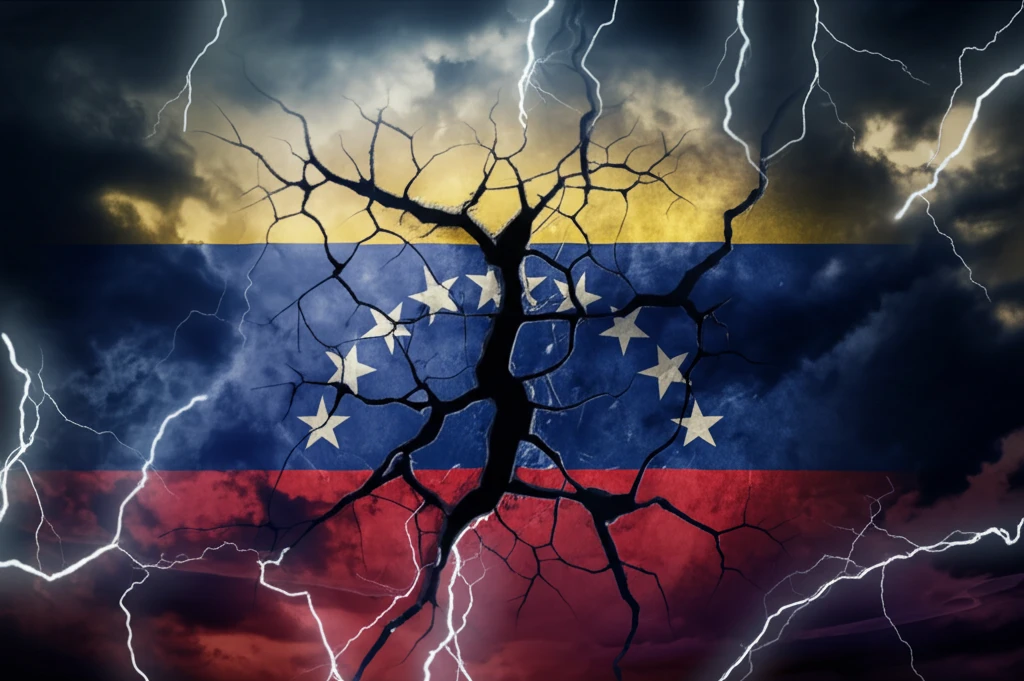
Venezuela's Political Crisis: How Polarization Erodes Democracy
"A deep dive into the factors driving Venezuela's democratic decline, from participatory democracy to social divides."
Venezuela, once a beacon of democratic promise in Latin America, now grapples with a severe political and economic crisis. Understanding how it got here requires a close examination of the concept of political polarization. This isn't just about differing opinions; it's about how deeply divided societies can undermine the very foundations of democracy.
Political polarization, as seen in Venezuela, occurs when societies split into opposing groups with conflicting values, principles, and ideologies. This division makes rational debate and compromise nearly impossible. When these differences intensify to the point where opposing groups view each other as enemies, the potential for violence and authoritarianism rises dramatically.
This article explores how political polarization took root in Venezuela, specifically during the Bolivarian Revolution led by Hugo Chávez and Nicolás Maduro. By examining the interplay of participatory democracy, social class, and competing political narratives, we can better understand the conditions that led to the erosion of democracy in this South American nation.
The Roots of Polarization: Competing Visions of Democracy

The seeds of Venezuela's polarization were sown with the introduction of participatory democracy into the country's constitution. While seemingly inclusive, this concept created a rift between competing visions of democracy: representative versus participatory. Those aligned with the traditional elite and middle class often favored a liberal-representative model, emphasizing individual rights and established institutions. Conversely, supporters of Chávez, largely from the marginalized popular sectors, championed participatory democracy, prioritizing collective social and economic rights.
- Competing Definitions: The core problem began from a political-ideological clash around the concepts of democracy itself – participatory versus representative.
- Rights Prioritization: The visions also privileged distinctly different rights, setting individual civil and political rights against collective social and economic rights.
- Exclusion: The previous dominant groups (middle and upper classes) became the political opposition, further exacerbating the divide.
Navigating Beyond Polarization: A Path Forward
Venezuela's experience offers critical lessons for other societies grappling with deep divisions. To prevent democracy from eroding, it's essential to reduce poverty and social inequality, foster ideological compatibility, and design inclusive public policies. A clear constitutional framework reflecting plurality is also crucial, ensuring that all citizens, regardless of their differences, feel represented and included. Without these safeguards, the promise of participatory democracy can turn into a path toward authoritarianism.
